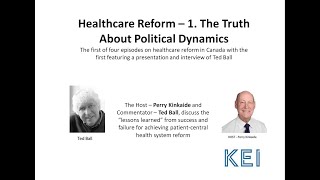
Is A Guaranteed Income Even Debatable?
- It’s time to confront the realities of Universal Basic Income - See also Troy Media HERE
Democracy thrives on debate. It’s about the clash of ideas, the noisy and sometimes uncomfortable exchange that fuels a government of the people, by the people, for the people. An informed citizenry engaging in civil discourse is the lifeblood of democracy.
Over the past year, we’ve tackled various hot-button issues where public and private interests collide. We’ve cut through ideological noise to focus on common sense and hard evidence when proposing solutions to manage change.
Last year’s debate centred on the future of work, with AI threatening to displace knowledge workers. The underlying question: How should the government manage this change? Should it intervene or let the market lead? Politicians often tell me their role is to cushion the blow, not get ahead of public sentiment.
Today, we confront an even more contentious issue: Universal Basic Income (UBI). OpenAI’s recent study under Sam Altman has reignited this debate. UBI polarizes like few topics, blending research with fierce political ideology. Advocates claim UBI’s social benefits outweigh economic costs without killing the work ethic. Critics see it as reckless government overreach.
UBI, Guaranteed Annual Income (GAI), social security, unemployment benefits, and welfare programs all aim to provide financial security. They join grants, scholarships, and subsidies for housing and healthcare as public money sources. The impact of these programs hinges on factors like the amount provided, eligibility conditions, and individual spending habits.
Research shows demographic factors heavily influence spending:
- Gender: Women typically spend on household needs and childcare, while men splurge on personal items.
- Education: Those with higher education invest or pay off debts with unearned income.
- Marital Status: Married people save or invest; singles are more likely to spend.
- Ethnicity: Cultural norms and socioeconomic status shape spending patterns.
- Location: Urbanites spend differently from rural dwellers due to cost-of-living differences.
- Age: Young people spend on discretionary items; older individuals save or cover healthcare costs.
GAI has clear pros and cons:
Pros:
- Slashes poverty and income inequality.
- Provides financial stability.
- Stimulates economic growth via consumer spending.
- Streamlines welfare by reducing multiple programs.
Cons:
- High fiscal burden on the government, possibly necessitating tax hikes or fund reallocation.
- Risk of inflation if mishandled.
- Could demotivate some people from working.
- Difficulty in setting appropriate income levels.
Setting aside ideological resistance to government intervention, does GAI stand up to scrutiny? Many studies indicate the benefits – like reduced poverty, better health and education outcomes, and economic stability – often surpass the costs. Yet, GAI’s success hinges on meticulous implementation and the existing economic landscape.
To roll out GAI effectively, the government must pilot programs to collect data and refine strategies. This means setting sustainable income levels, securing funding, and preventing inflation. Collaboration with economists, social scientists, and other stakeholders is vital. Public awareness and education campaigns will manage expectations and support the transition.
GAI is a tantalizing prospect for those who believe in government-led societal improvement. The myriad public benefit programs reflect the complexity of human needs. Merging them into a single GAI program is compelling. Perhaps this election cycle will finally ignite the fierce debate we need on this transformative idea. – Editor
The TOP 30 Webinars and Newsletters
The three most popular topics ranked #13 - 15 among the top 30 KEI Network's newsletters and webinars focus on the implications of AI and innovation on the economy, jobs, and society, highlighting both the opportunities and challenges presented by these technological advancements.
- Economic Diversification and Innovation. The role of government in economic diversification and the development of Alberta's innovation ecosystem. It highlights the varying perspectives of industries, professions, and the public sector on the economy, emphasizing the regional differences.
-
Impact of AI on Jobs and Identity. The potential threats of AI, particularly generative AI, on jobs and personal identity. It delves into whether the development of AI should be slowed down and includes insights from ChatGPT on the expected job impact across different professions. The discussion is focused on the risks and benefits of AI, with a special emphasis on employment and personal identity.
-
Advancements and Applications of AI. The rapid advancements and widespread applications of OpenAI's ChatGPT. The discussion covers its transformative potential in various tasks, such as business planning, content creation, and even simulating conversations with historical or fictional characters. It also mentions the competitors like Bing by Microsoft and Bard by Alphabet/Google, reflecting on the broader AI landscape.
Ranked 10th of the top 30 most popular KEI Network's newsletters and webinars. HEALTHCARE REFORM (Episode # 1) - The Truth About Political Dynamics Access at KEInetwork.net May15, 2023 Newsletter #118 HERE and the associated webinar Video link HERE https://youtu.be/xS20B8r3u-4

The HOST Perry Kinkaide interviews Ted Ball after his presentation about stakeholder frustration at all levels - politicians and leaders, patients and practitioners, in Canada's healthcare system are facing and what to do to prepare for a future of continuing volatility, uncertainty, complexity and ambiguity. The presentation and the viewers' give and take are exceptional as they share their viewpoints and varied experience in both the public and private sectors and also their experience in working with national and provincial leaders. Overall - systemic change is called for. Cries for transitioning to a patient-centric system go unheeded. Reform is warranted. People will not get service as long as the public system remains over-protected and over-valued.
Ranked 11th of the top 30 most popular KEI Network's newsletters and webinars. RANSOMEWARE - A serious threat Access at KEInetwork.net May15, 2023 Newsletter #118 HERE and the associated webinar Video link HERE https://youtu.be/9Z5_HKHlQxs

Ling Huang of Northern Technology reviews the threats to cybersecurity that are accompanying arrival of the digital economy, as safety and security are compromised in the interest of "for free" and promises, promises. Fortunately Ling shares with us the simple things - the discipline, we should adopt. The audience adds to the presentation with everyday questions about what we are doing right and wrong, and of threats we have experienced or heard about. This is a must watch and share.
Ranked 12th of the top 30 most popular KEI Network's newsletters and webinars. In Praise of Organizational Excellence Access at KEInetwork.net May15, 2023 Newsletter #118 HERE and the associated webinar Video link HERE https://youtu.be/wnA-ObZMAk8

Perry Kinkaide - host, interviews Dawn Ringrose: author, researcher, and life-long champion of learning from others in the pursuit of organizational excellence. The webinar features Dawn's review of the principles of organizational excellence and research into their application in organizations large and small, public and corporate, and a comparison of Canada with Other Nations.
Audience engagement enriches the webinar by discussing the application of the principles in economic and business development, contrasting management and administration, the relevance of excellence in keeping up with the rate of change specifically the impact of emerging technologies, the importance of measuring performance, and finally what to expect in Canada's future.


ZOOM https://us02web.zoom.us/j/82390691947

Editor@KEInetwork.net

Visit KEInetwork.net